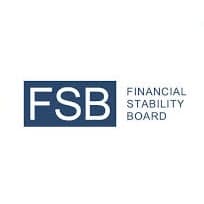The has released the final and latest version of its report dealing with FX benchmarks, along with supplemented recommendations for notable measures for reform for FX markets.
The FSB is a multinational entity designed to observe and help facilitate proper transparency and compliance measures for market participants across 24 countries. The most recent FSB report comes on the heels of an earlier report published back in July, which received widespread interest.
More specifically, the report deals with the WM/Reuters (WMR) 4pm London fix produced by the WM Company and its inherent effect on the FX market. This construct has been the source of unwavering attention, given the allegations of manipulation presently convulsing the institutional FX industry.
These Recommendations Include:
- The calculation methodology of the WMR benchmark rates
- Recommendations from a review by the International Organization of Securities Commissions (IOSCO) of the WM fixes
- The publication of reference rates by central banks
- Market infrastructure in relation to the execution of fix trades
- The behavior of market participants around the time of the major FX benchmarks (primarily the WMR 4pm London fix)
According to Marshall Bailey, President of ACI, Financial Markets Association, in a recent comment on the recommendations outlined by the FSB, “The ACI welcomes the guidance outlined in today’s report from the Financial Stability Board. It is a positive step for the industry and will provide clarity for markets, investors and global policymakers. The importance and value of these recommendations cannot be understated and is a positive step towards improving the reputation of the FX industry and creating a fairer and more efficient market.”
Moreover, adding, “We are pleased the FSB’s recommendations are closely in line with many of the ACI’s responses to the consultative document, including the widening of the fix window to five minutes. As the ACI has long maintained, it is not the fix that is broken, but rather the manner in which a few individuals use it.”
“Restoring faith in the industry and stamping out practices which undermine the effectiveness of the financial markets is a key priority, and the need for consistent education on what is and isn’t acceptable behavior is paramount. The formal adoption of an international set of standards for ethical conduct and behavior across the global financial industry will provide clarity and guidance on what is expected of all market professionals, from day traders to senior executives,” Bailey added.
Prior Allegations Provide Framework for Recommendations
As a result of illicit manipulation allegations of FX rates, the FSB Plenary formed a working group to help moderate, focus on, and ultimately serve as a watchdog for FX benchmarks. Officially, the mandate of the group was to undergo analysis of the FX market structure and incentives that may yield particular types of trading activity around the benchmark fixings.
The paramount goal of these measures, as stipulated by the FSB, is the aim of delivering a marked improvement in market structure and overall conduct by its participants. However, this also underscores the need for additional regulatory changes to help ensure the administering of appropriate actions and behaviors.
Ultimately, “The 4pm benchmark broadly works well but although but it certainly needs some repair, which the FSB has addressed, a replacement is not needed. There are already multiple benchmarks available that have not been deployed by the market and are yet to be proven effective. The 24-hour nature of FX reduces the effectiveness of benchmarks such as VWAP and TWAP, and deployment would be extremely costly and require significant changes in legal documents, client contracts and performance measurement agreements,” reiterated Bailey.





Be First to Comment